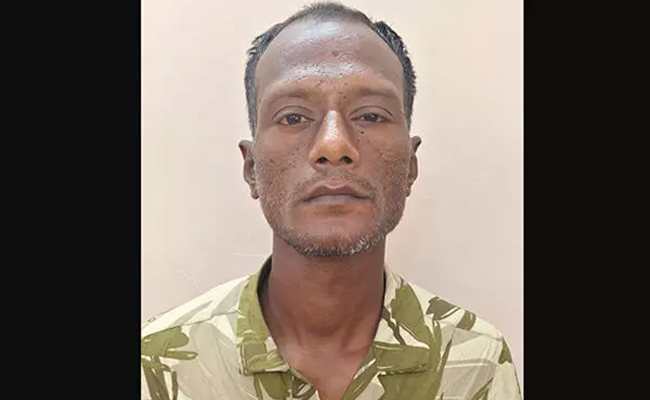Kuala Lumpur (AP): Singapore conducted its first execution of a woman in 19 years on Friday and its second hanging this week for drug trafficking despite calls for the city-state to cease capital punishment for drug-related crimes.
Activists said another execution is set next week.
Saridewi Djamani, 45, had been sentenced to death in 2018 for trafficking nearly 31 grams (1.09 ounces) of diamorphine, or pure heroin, the Central Narcotics Bureau said. Its statement said the amount was "sufficient to feed the addiction of about 370 abusers for a week."
Singapore's laws mandate the death penalty for anyone convicted of trafficking more than 500 grams (17.64 ounces) of cannabis and 15 grams (0.53 ounces) of heroin.
Djamani's execution came two days after that of a Singaporean man, Mohammed Aziz Hussain, 56, for trafficking around 50 grams (1.75 ounces) of heroin.
The narcotics bureau said both prisoners were accorded due process, including appeals of their conviction and sentence and petition for presidential clemency.
Human rights groups, international activists and the United Nations have urged Singapore to halt executions for drug offenses and say there is increasing evidence it is ineffective as a deterrent. Singapore authorities insist capital punishment is important to halting drug demand and supply.
Human rights groups say it has executed 15 people for drug offenses since it resumed hangings in March 2022, an average of one a month.
Anti-death penalty activists said the last woman known to have been hanged in Singapore was 36-year-old hairdresser Yen May Woen, also for drug trafficking, in 2004.
Transformative Justice Collective, a Singapore group which advocates for the abolishment of capital punishment, said a new execution notice has been issued to another prisoner for Aug, 3 the fifth this year alone.
It said the prisoner is an ethnic Malay citizen who worked as a delivery driver before his arrest in 2016. He was convicted in 2019 for trafficking around 50 grams (1.75 ounces) of heroin, it said. The group said the man had maintained in his trial that he believed he was delivering contraband cigarettes for a friend he owed money and he didn't verify the contents of the bag as he trusted his friend.
Although the court found he was merely a courier, the man still had to be given the mandatory death penalty, it said. The group "condemns, in the strongest terms, the state's bloodthirsty streak" and reiterated calls for an immediate moratorium on the use of the death penalty.
Critics say Singapore's harsh policy merely punish low-level traffickers and couriers, who are typically recruited from marginalized groups with vulnerabilities. They say Singapore is also out of step with the trend of more countries moving away from capital punishment. Neighbouring Thailand has legalized cannabis while Malaysia ended the mandatory death penalty for serious crimes this year. (AP)
Let the Truth be known. If you read VB and like VB, please be a VB Supporter and Help us deliver the Truth to one and all.
Pilibhit (PTI): A 19-day-old elephant calf, brought from Bijnor, was placed under care at the Pilibhit Tiger Reserve (PTR) on Sunday, an official said and added that the calf got separated from its mother in the forest area of Bijnor.
The calf was born on December 2 in the Bijnor forest area and got separated from its mother shortly after birth, the official said.
The forest department made several attempts to reunite it with its mother, but without any success. To ensure the calf's safety and better care, it was decided to transfer it to the Pilibhit Tiger Reserve on the instructions of senior officials.
On Saturday, Deputy Director Manish Singh received the calf. Special arrangements have been made in the reserve for its care. It has been kept in a safe and clean environment to provide it with a natural setting and protect it from external noise and disturbances.
Singh told reporters that raising an 19-day-old calf is challenging.
It requires a special diet as a substitute for mother's milk and constant monitoring.
He said a special team has been formed to provide 24-hour care. Since the calf is very young, it is being cared for like a newborn baby.
According to Singh, the primary responsibility for monitoring the calf's health has been entrusted to PTR's veterinarian, Dr Daksh Gangwar. Under his supervision, a complete record of the calf's health checkups, diet, and body temperature is being maintained. The team is ensuring that the calf does not contract any infection.





